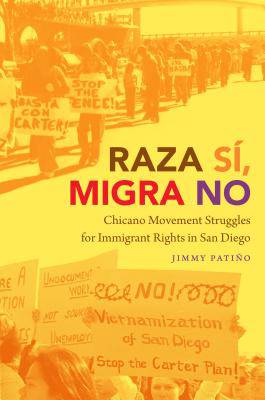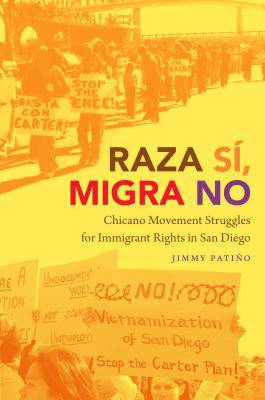
- Afhalen na 1 uur in een winkel met voorraad
- Gratis thuislevering in België vanaf € 30
- Ruim aanbod met 7 miljoen producten
- Afhalen na 1 uur in een winkel met voorraad
- Gratis thuislevering in België vanaf € 30
- Ruim aanbod met 7 miljoen producten
Zoeken
€ 137,95
+ 275 punten
Uitvoering
Omschrijving
As immigration from Mexico to the United States grew through the 1970s and 1980s, the Border Patrol, police, and other state agents exerted increasing violence against ethnic Mexicans in San Diego's volatile border region. In response, many San Diego activists rallied around the leadership of the small-scale print shop owner Herman Baca in the Chicano movement to empower Mexican Americans through Chicano self-determination. The combination of increasing repression and Chicano activism gradually produced a new conception of ethnic and racial community that included both established Mexican Americans and new Mexican immigrants. Here, Jimmy Patiño narrates the rise of this Chicano/Mexicano consciousness and the dawning awareness that Mexican Americans and Mexicans would have to work together to fight border enforcement policies that subjected Latinos of all statuses to legal violence.
By placing the Chicano and Latino civil rights struggle on explicitly transnational terrain, Patiño fundamentally reorients the understanding of the Chicano movement. Ultimately, Patiño tells the story of how Chicano/Mexicano politics articulated an "abolitionist" position on immigration -- going beyond the agreed upon assumptions shared by liberals and conservatives alike that deportations are inherent to any solutions to the still burgeoning immigration debate.
By placing the Chicano and Latino civil rights struggle on explicitly transnational terrain, Patiño fundamentally reorients the understanding of the Chicano movement. Ultimately, Patiño tells the story of how Chicano/Mexicano politics articulated an "abolitionist" position on immigration -- going beyond the agreed upon assumptions shared by liberals and conservatives alike that deportations are inherent to any solutions to the still burgeoning immigration debate.
Specificaties
Betrokkenen
- Auteur(s):
- Uitgeverij:
Inhoud
- Aantal bladzijden:
- 356
- Taal:
- Engels
- Reeks:
Eigenschappen
- Productcode (EAN):
- 9781469635552
- Verschijningsdatum:
- 13/11/2017
- Uitvoering:
- Hardcover
- Formaat:
- Genaaid
- Afmetingen:
- 156 mm x 234 mm
- Gewicht:
- 725 g

Alleen bij Standaard Boekhandel
+ 275 punten op je klantenkaart van Standaard Boekhandel
Beoordelingen
We publiceren alleen reviews die voldoen aan de voorwaarden voor reviews. Bekijk onze voorwaarden voor reviews.











